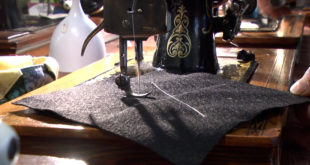Recently, stamp sands have sparked discussions at local city council meetings and now the Michigan Department of Community Health is stepping in to help. The DCH has finalized two Public Health Assessments for the Torch Lake Superfund site and surrounding areas located in Houghton and Keweenaw counties. The assessments focus on breathing air that contains stamp sands dust, as well as potential exposure to chemicals in stampsands at beaches and by eating fish from the area. Health officials found that exposure due to excavating or riding off-road vehicles at the Gay tailings pile along Lake Superior are not expected to cause harm. More information is needed to determine the public health implications of exposure during street-sweeping activities in Calumet, when stamp sands that were applied to the roads in the winter become airborne. The Public Health Assessment about recreational use at beach areas at Lake Linden and along Torch Lake in Houghton County found that even though contaminated soil and sediment have been removed from several areas, additional sampling is needed to determine if the remaining chemicals present may harm people’s health. Fish from Torch Lake, Boston Pond, and Calumet Lake are under statewide fish eating guidelines.
Check Also
Northern Michigan University will oversee a $2.5 Million research grant addressing poverty and opioid use disorder
Northern Michigan University will oversee a 2.5 million dollar grant program to address addiction, employment, …
 Keweenaw Report Your Source for Local News and Sports
Keweenaw Report Your Source for Local News and Sports





